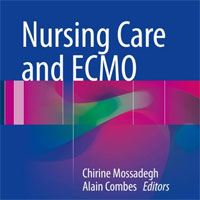Stories Category: Intensive Care

Delirium is Prevalent in Older Hospital Inpatients and Associated with Adverse Outcomes
Delirium is prevalent in older adults in UK hospitals but remains under-recognised. Frailty is strongly associated with the development of delirium, but delirium is less likely to be recognised in frail patients. The... read more

Failure of Non-invasive Ventilation in Patients with Acute Lung Injury
A high failure rate of the initial non-invasive positive pressure ventilation (NIPPV) therapy has been observed in medical critically ill patients with acute lung injury (ALI). Unless the underlying shock, metabolic acidosis... read more

Predicting Outcome in Patients with Moderate to Severe TBI Using Electroencephalography
Multifactorial Random Forest models using quantitative electroencephalography (qEEG) features, clinical data, and radiological findings have potential to predict neurological outcome in patients with moderate to severe traumatic... read more

Acute Lung Injury: Epidemiology, Health Effects and Therapeutic Treatment Strategies
ALI/acute respiratory distress syndrome (ARDS) is characterized by diffuse alveolar damage, alveolar capillary leakage, lung edema, neutrophil-derived inflammation, and surfactant dysfunction. These changes lead to clinical... read more

Acute Kidney Injury in Hematopoietic Stem Cell Transplantation
This review provides an update on the risk factors, causes, and treatment approaches to HSCT-associated acute kidney injury (AKI). Patients who undergo HSCT have many risk factors for developing AKI, including sepsis,... read more

Ethical Considerations About Artificial Intelligence for Prognostication in Intensive Care
New Artificial Intelligence (AI) and machine learning techniques have the potential to improve prognostication in intensive care. However, they require further refinement before they can be introduced into daily practice.... read more

Risks and Benefits of Stress Ulcer Prophylaxis for Patients With Severe Sepsis
Since the rate of gastrointestinal bleeding requiring endoscopic hemostasis is not different comparing patients with and without stress ulcer prophylaxis, and the increase in hospital-acquired pneumonia is significant, routine... read more

Effect of Depth of Sedation in Older Patients Undergoing Hip Fracture Repair on Postoperative Delirium
In the primary analysis, limiting the level of sedation provided no significant benefit in reducing incident delirium. However, in a pre-specified subgroup analysis, lighter sedation levels benefitted reducing postoperative... read more

Cognitive impairment in chronic obstructive pulmonary disease: disease burden, determinants and possible future interventions
Cognitive impairment (CI) is an important but an under-recognized extra-pulmonary feature of chronic obstructive pulmonary disease (COPD). It is related to the burden of disability, worse health outcomes and impaired self-management.... read more

Evidence is stronger than you think: a meta-analysis of vitamin C use in patients with sepsis
Despite varying degrees of statistical significance between the original studies, this meta-analysis reveals a positive correlation between incorporating vitamin C in the treatment of sepsis and favorable patient outcomes,... read more

2019 Elf on the Shelf
It is time for the second annual Elf on the Shelf social media photo sweepstakes! Your creative entries help make the season bright. So, just snap a photo of an Elf on the Shelf scene in your unit, and submit it here. Three... read more

Assessment of Variability in End-of-Life Care Delivery in ICUs in the United States
This study suggests most decedents in the ICU avoid CPR at EOL, have family present at their bedside, and are closely assessed for pain. However, the delivery of EOL care varies widely among units in the United States, including... read more

Hypothermia and Cerebral Ischemia: Mechanisms and Clinical Applications
A comprehensive review of the scientific and clinical studies that have led to the resurgence of interest in hypothermia as a neuroprotective strategy in the treatment of stroke and traumatic brain injury (TBI). Topics... read more

Tailoring Hypothermia Duration to Ischemia Duration Improve Outcome From Out-of-Hospital Cardiac Arrest
Although a larger hypothermia/ischemia ratio was associated with good functional outcome after out-of-hospital cardiac arrest in this cohort, this association is primarily driven by duration of time to return of spontaneous... read more








